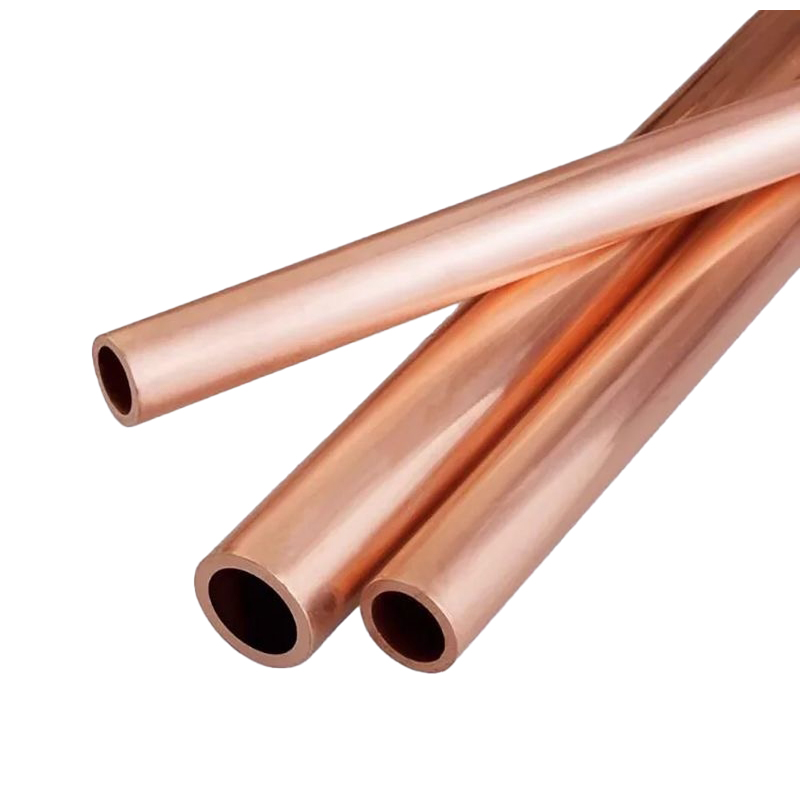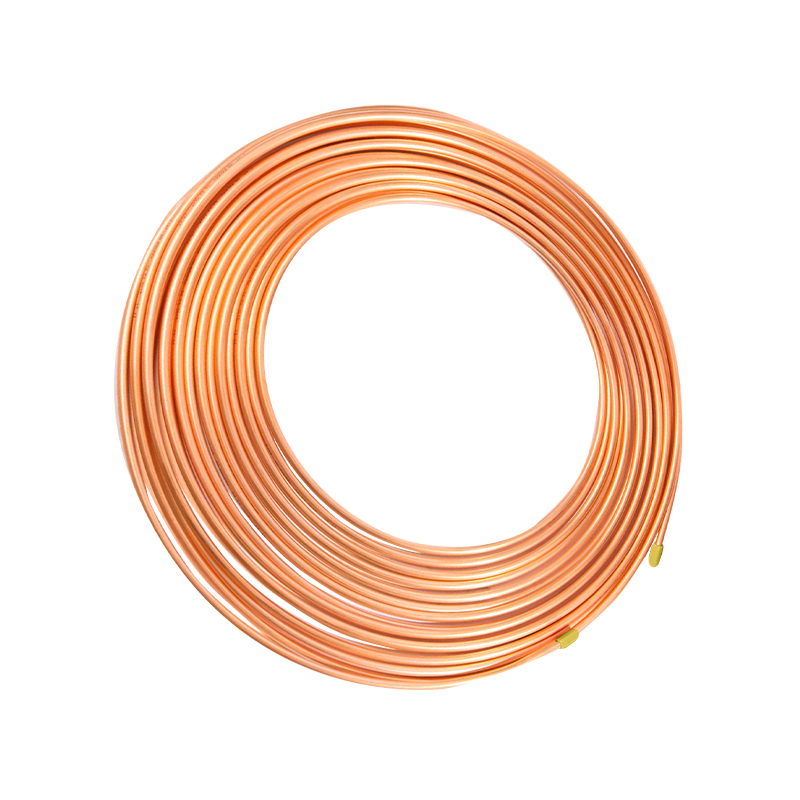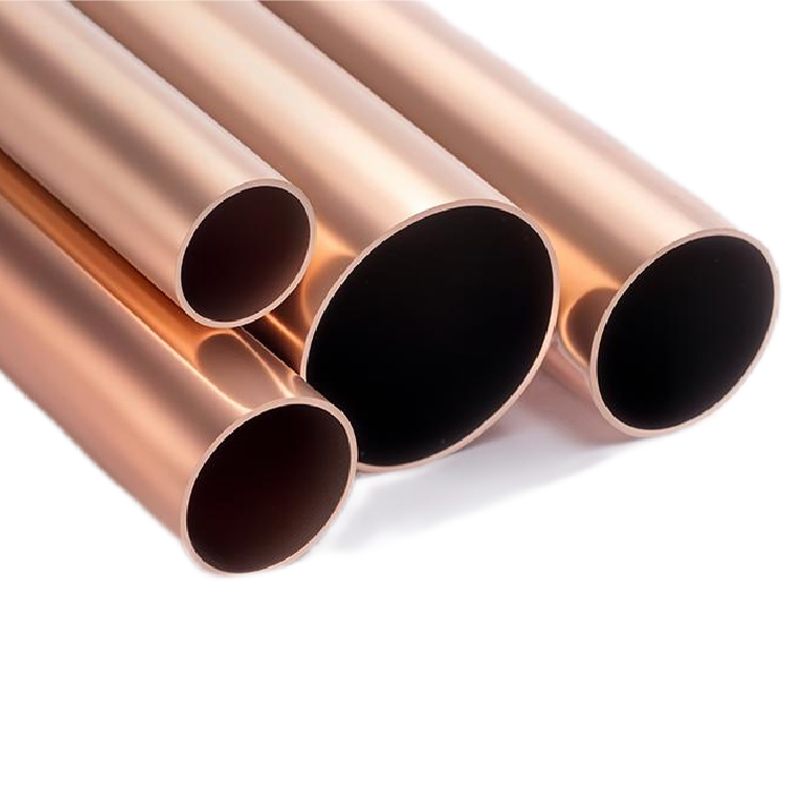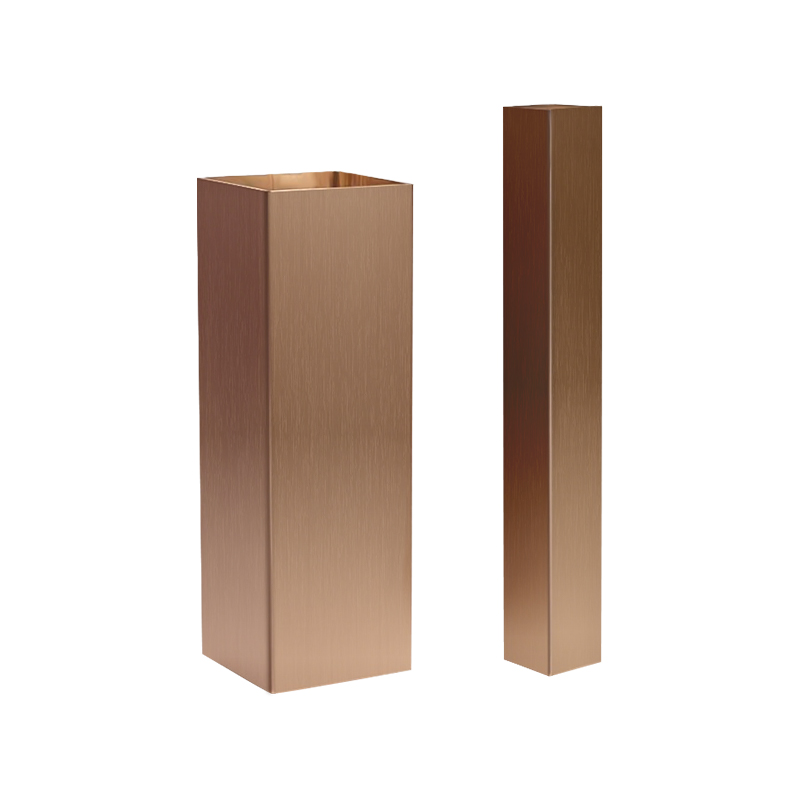
The Critical Role of Thick-Wall Copper Tube in the Energy and Construction Industries
With the continuous growth of global energy demand and the increasingly stringent material performance requirements of the construction industry, thick-wall copper tube has gradually become a key material in these industries due to its excellent physical properties, corrosion resistance, and high-temperature resistance. Particularly in the energy and construction sectors, thick-wall copper tube not only meets the requirements for high strength and long life, but also solves many technical challenges.
Application of Thick-Wall Copper Tube in the Energy Industry
The energy industry has extremely high requirements for piping materials, especially in oil and gas transportation, heat exchange systems, and power equipment cooling. As a key engineering material, thick-wall copper tube plays an irreplaceable role.
The Critical Role in Oil and Gas Transportation
The extraction, transportation, and storage of oil and gas require high-strength, corrosion-resistant piping materials to withstand harsh environments and extreme conditions such as high pressure and low temperature. To meet these requirements, thick-wall copper tube, with its excellent corrosion resistance and high-pressure resistance, has become a vital piping material in the oil and gas industry. Compared to traditional steel pipes, copper pipes not only offer greater corrosion resistance but also offer far superior durability, particularly in corrosive environments such as salt water and acidic gases. Thick-wall copper pipes effectively resist environmental corrosion, ensuring safe and stable energy transportation and reducing maintenance costs and operational risks for pipeline systems.
Efficient Heat Transfer in Heat Exchange Systems
In energy production, the efficiency of heat exchange systems directly determines energy utilization and economic efficiency. Especially in high-temperature, high-pressure applications such as thermal and nuclear power generation, thick-wall copper pipes, due to their excellent thermal conductivity and high-temperature resistance, have become an indispensable material in heat exchanger systems. Copper pipes' high thermal conductivity allows them to quickly transfer heat to the cooling system, improving heat exchange efficiency and reducing energy waste. Furthermore, copper pipes' long-term stability in high-temperature environments has led to their widespread application in the energy sector, making them ideal heat transfer conduits in heat exchangers.
Key Applications in the Power Industry
In the power industry, copper tubes, particularly in cooling systems and power conversion equipment, play a vital role due to their excellent electrical and thermal conductivity. Thick-wall copper tubes are primarily used in cooling piping, power conversion device protection, and heat exchange systems. Copper tubes effectively improve equipment cooling, prevent damage caused by overheating, and ensure stable operation. Especially in high-load, high-current power equipment, copper tubes, with their excellent electrical conductivity and heat resistance, are a key material for ensuring power system safety and improving energy efficiency.
The Key Role of Thick-Wall Copper Tubes in the Construction Industry
As the construction industry places increasingly stringent demands on piping systems, thick-wall copper tubes, as a durable, environmentally friendly, and efficient material, are widely used in water supply, HVAC, and air conditioning systems. Their high strength, corrosion resistance, and excellent processability make thick-wall copper tubes irreplaceable in the construction industry.
The Core Role in Water and HVAC Systems
In modern buildings, water supply piping and HVAC systems are essential components of the infrastructure. Thick-wall copper pipes are particularly crucial in buildings with high water quality requirements, such as residential buildings, commercial buildings, and hospitals. Copper pipes have natural antibacterial properties, effectively preventing water contamination and ensuring a clean and healthy water supply system. Furthermore, their corrosion resistance ensures long-term stability. Even in extremely cold or hot environments, copper pipes maintain their high strength, preventing leaks caused by corrosion or rupture.
Copper pipes also perform exceptionally well in HVAC systems. Due to copper's excellent thermal conductivity, thick-wall copper pipes efficiently transfer heat and play a vital role in heating and cooling systems. In particular, in floor heating and central air conditioning systems, thick-wall copper pipes, as water circulation pipes, improve heat exchange efficiency, reduce energy consumption, and ensure stable system operation.
Application in Air Conditioning Systems
As an integral part of modern buildings, the choice of piping material directly impacts the efficiency and service life of air conditioning systems. Thick-wall copper tubes, due to their excellent high-temperature and corrosion resistance, as well as their excellent thermal conductivity, are widely used in central air conditioning systems, split air conditioners, and heat pump systems. Copper tubes efficiently conduct condensation heat, reducing energy consumption and ensuring efficient operation of air conditioning systems.
For large commercial buildings, hotels, and office buildings, air conditioning systems must maintain stable operation under high loads and intensive use. Thick-wall copper tubes are the ideal choice to meet these stringent requirements. The use of copper tubes in air conditioning systems not only improves cooling efficiency but also extends system life, reducing failure rates and maintenance costs.
The Critical Role of Fire Protection and Electrical Systems
In building fire protection systems, copper tubes, as a high-temperature and corrosion-resistant material, are widely used in fire sprinkler systems and emergency water supply piping. Copper tubes can effectively withstand high temperatures, preventing pipe ruptures or leaks caused by fires, and ensuring the efficient operation of fire protection systems. Furthermore, copper tubes' corrosion resistance and high strength make them ideal for protecting power cables and transmission lines. Their application is particularly important in buildings with high power loads and high security requirements.
In electrical systems, copper tubing can also serve as the outer sheath of electrical wiring conduits, ensuring the safety and stability of cables and protecting them from damage caused by external factors. Due to copper's excellent electrical conductivity, copper tubing can also effectively reduce power loss, improving the efficiency and safety of building power systems.
Future Development Prospects of Thick-Wall Copper Tubes
With technological advancements and changing market demands, the application of thick-wall copper tubes in the energy and construction industries will become increasingly widespread, offering promising future development prospects. In particular, as a recyclable and environmentally friendly material, copper tubes hold enormous market potential in the context of environmental protection and sustainable development. With continuous improvements in thick-wall copper tube production processes, their corrosion resistance, high-temperature resistance, and strength will be further enhanced, enabling them to meet the demands of more demanding applications.
1. Environmental Trends Driving Market Growth: With increasingly stringent environmental regulations, copper tubes, as a recyclable and low-pollution material, will undoubtedly receive greater policy support, leading to continued growth in market demand.
2. Driven by Smart Buildings: With the rise of smart buildings, the use of copper tubes in areas such as smart air conditioning and smart water supply systems will further increase. The stability and high performance of copper pipes perfectly meet the high material performance requirements of smart buildings.
3. Expansion into Emerging Industries: In addition to traditional energy and construction sectors, copper pipes will also play a significant role in emerging industries such as new energy vehicles, electronic equipment, and medical devices. With the advancement of technological innovation, the application areas of copper pipes will continue to expand.
Related news
-

What is a thick-walled copper tube? Thick-walled copper tube, also known as seamless thick-walled copper tube, is a high-performance metal tube made o...
See Details -

Overview and Importance of Copper Capillary Tube In modern industrial equipment and precision control systems, miniaturization and high precision have...
See Details -

What is a copper tube? Analysis of material composition and basic characteristics Definition of copper tube Copper tube is a tubular object made of co...
See Details -

Understanding Copper Square Tubes: Composition, Grades, and Typical Applications Copper square tubes are specialized extrusions that combine the super...
See Details

 English
English Español
Español 中文
中文